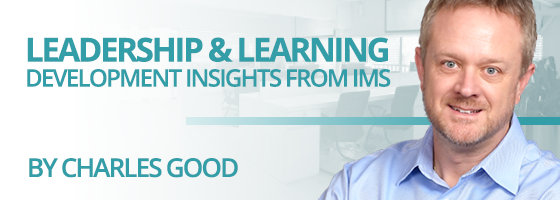In a world overflowing with marketing messages, most brands rely solely on logic and reason, trying to convince consumers to choose them based on logical appeals. However, in her book The Power of Instinct: The New Rules of Persuasion in Business and Life, IMS Educator Leslie Zane makes the compelling case that these traditional tactics are outdated and ineffective. According to Zane, the actual driver of consumer choice lies in the unconscious mind—a realm where instinct, memory, and associations subtly but powerfully influence every decision. Her message is clear: you must first win the mind to win the market.
THE BIG IDEA:
THE BRAIN BUYS BEFORE WE DO
Zane’s core insight is that people don’t choose based on logic or loyalty. They choose based on instinctive preference, which is formed through a network of positive associations stored in their brains, called a “brand connectome.” The more significant and positive this network is, the more likely a brand will be automatically chosen. Therefore, it’s not about convincing customers through persuasive arguments; it’s about winning brain space.
BREAKING THE BRANDING MYTHS
FAMILIAR BEATS UNIQUE
One of Zane’s most striking ideas is that the brain is wired to seek the familiar, not the unique. This statement flies in the face of conventional branding wisdom, which prizes standing out. Zane acknowledges that differentiation matters, but it must be rooted in recognizable associations. Take, for example, Aquafina’s snow-capped mountain or Tropicana’s iconic orange with a straw; they succeed not because they’re radically new, but because they tap into universally understood symbols of purity and freshness, respectively.
ONE BIG IDEA IS NOT ENOUGH
Zane also shoots down the myth that companies or brands need “one big idea.” A single message may simplify branding, but it limits growth. In contrast, a layered message, where multiple positive ideas reinforce each other, creates a more prosperous and resilient connectome. Take VRBO, which doesn’t just sell vacation homes, but blends the ideas of family, nature, escape, and personal freedom into a powerful story you can place yourself in.
Remember, the brands that thrive aren’t necessarily those with better products; they’re the ones that dominate people’s mental real estate. Nike is a prime example. Its swoosh is a visual growth trigger that implies motion and achievement. But Nike doesn’t stop there. It saturates the brain with positive associations through athlete sponsorships, fashion partnerships, and its iconic “Just Do It” slogan, each adding another branch to its neural tree.
FANTASY DRIVES REALITY
Even fantasy can play a pivotal role in building brands. As Zane points out, consumers may want authenticity and realism, but their choices reveal a different truth: they crave idealized, immersive experiences. Look at how Zillow taps into dreams of a better home or Gatorade into the fantasy of peak athletic performance. And don’t forget Oprah, who became a lifestyle brand not by selling one thing, but by extending her presence into health, books, philanthropy, and emotional resonance—until she felt like a friend.
BUILD BRANDS THAT STAND OUT
For legacy brands, the lesson is not to reinvent themselves entirely but to evolve intelligently. Familiarity breeds trust. Continuity creates comfort.
So, how do you build this instinctive advantage? You grow your connectome by seeding growth triggers—visual, verbal, tactile, even olfactory cues—that link your brand to positive associations already embedded in people’s memories. And you focus not just on loyal customers, but on growth targets, those who haven’t chosen you. Actual brand growth doesn’t come from rewarding loyalty but from expanding relevance.
As Zane reminds us, you don’t control your choices. Your brand connectome does.
So, if you want to grow your brand, stop trying to convince customers, and start embedding your brand in their memories, because to win the market, you must first win the mind.
For other articles on this topic you may want to read Unlock the Power of Language to Influence Others. You can also watch my interview with Leslie Zane.
ABOUT CHARLES GOOD
Charles Good is the president of The Institute for Management Studies, which provides transformational learning experiences that drive behavioral change and develop exceptional leaders. Charles is an innovative and resourceful leader who specializes in bringing people together to develop creative organizational and talent strategies that enable business results. His areas of expertise include assessing organizational skill gaps and leading the design, creation and delivery of high impact, innovative learning solutions that achieve business goals. Mr. Good is also the host of the Good Leadership podcast.
